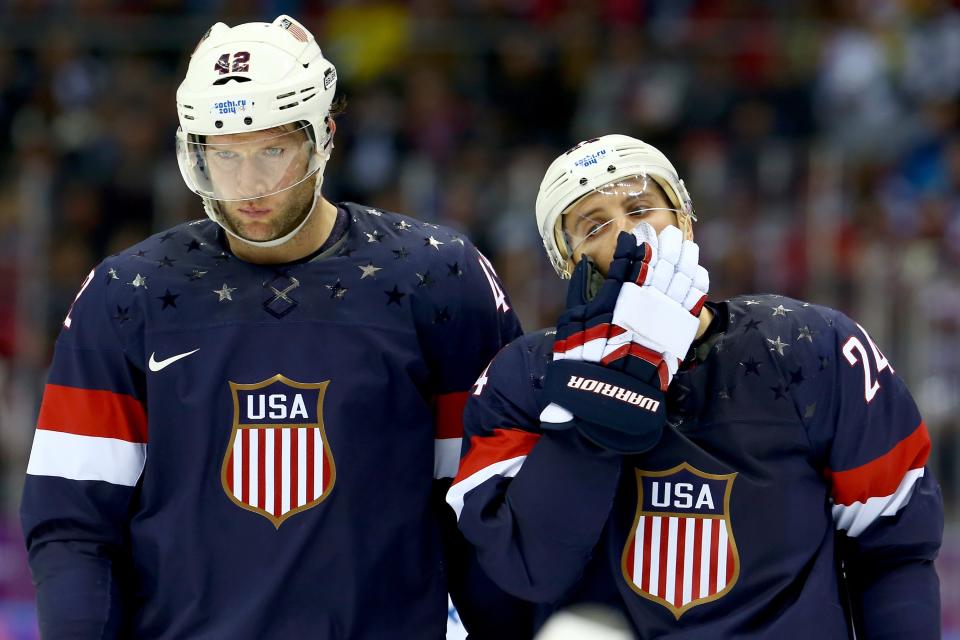Sochi Problems: Olympics hurt NHL teams that sent several players to Games

Throughout its Olympic participation, the NHL has attempted to figure out what the benefits and costs are to its product and its teams. One key question: Does the wear, tear and extra exhaustion from the Winter Games experience have a negative effect on a team’s performance when their star players return for the stretch run?
University of Massachusetts professor Neil Longley believes it does, and has the numbers to back it up.
In 2012, he found that a team’s goal differential “dropped by 0.088 of a goal per game compared with its performance before the Games,” according to the New York Times, for every player it sent to the Olympics. The more Olympians on the team, the more that team’s numbers trended downward after the Games.
Longley ran the numbers through last Friday’s games, and discovered the trend has continued after the Sochi Games, as goal differential dropped by 0.077 per Olympian.
From the Times and Jeff Klein:
The goal differential of teams that sent seven or more players to the Olympics (Chicago, Detroit, St. Louis, Anaheim, Montreal, the Rangers, Pittsburgh and Vancouver) collectively dropped by an average of 0.33 goals a game. Of those teams, only the Canucks failed to make the playoffs, but they were in position for a postseason berth when the Olympic break began.
The goal differential of teams that sent three or fewer players to the Olympics (Calgary, Dallas, Edmonton, Toronto, Florida, Nashville and Ottawa) improved by 0.09 goals a game. Only one of those teams — Dallas — is headed to the playoffs.
The largest drops among teams sending seven or more players to Sochi were by St. Louis (minus 1.11 goals a game), Pittsburgh (minus 1.01), Anaheim (minus 0.52), Chicago (minus 0.50) and Vancouver (minus 0.47).
St. Louis, Pittsburgh and Chicago all lost significant players to injury after Sochi, which obviously would have affected their offense and defense. Longley said that despite injuries to several Olympians – David Backes, Evgeni Malkin, Jonathan Toews and Patrick Kane among them – it was “impossible to determine whether the injuries could be attributed to Olympic-related physical or emotional fatigue.”
It’s naïve to think that the players involved in the Olympics and its trappings – travel, pressure-filled games, an interruption in training and routine – aren’t adversely affected by it. Hence, it would be interesting to see Longley and his ilk focus the study on individual players, in comparison to what they do this time of year in a non-Olympic year.
Are Phil Kessel’s five goals in 21 games in March and April the “Olympic Effect” if he scored 16 in 26 games last home stretch and five goals in 18 games the previous home stretch? Or do we dismiss it because he scored six goals in 21 games in 2011-12?

 Yahoo Sports
Yahoo Sports 

